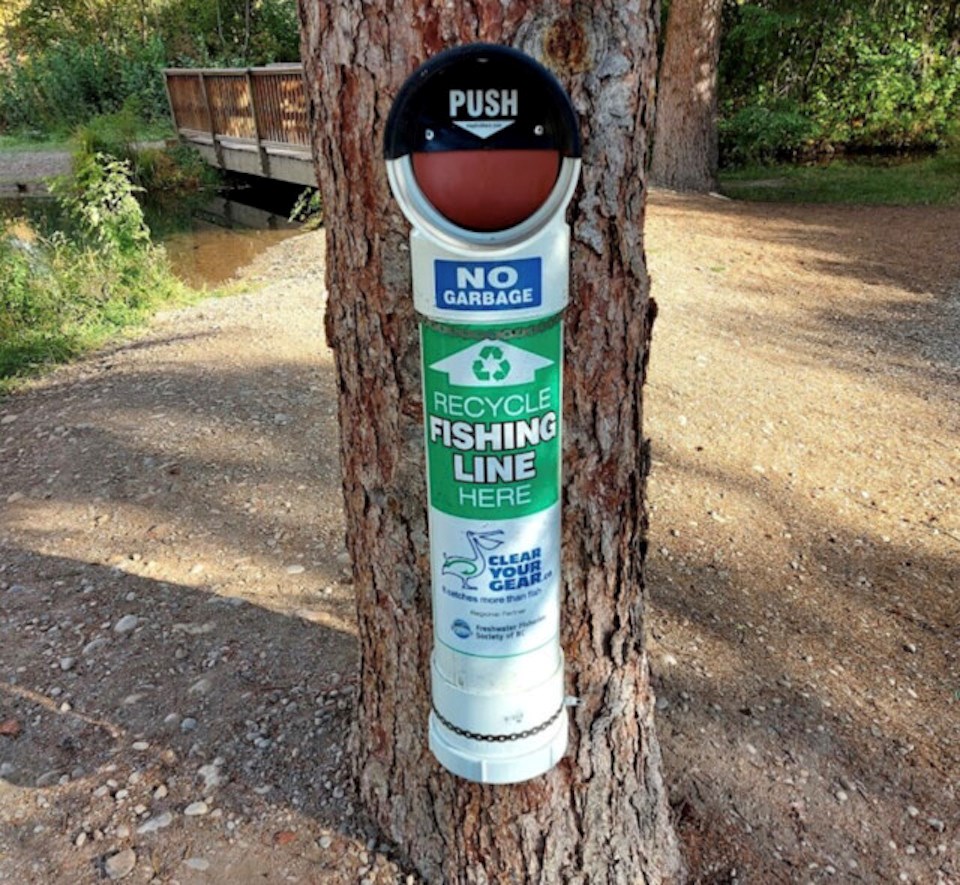It will take up to 600 years for your typical fishing line to break down in the environment, and with more people taking up the sport of angling, there is a growing need to keep our waterways clean.
The Freshwater Fisheries Society of BC says it has partnered with Canada’s volunteer fishing-line recycling program, Clear Your Gear, to expand the province’s network of fishing line receptacles.
The society has received 30 that will be placed at hatchery fishing ponds, high-use urban lakes, high-traffic fishing areas, and popular fishing docks.
So far in the Southern Interior, there are just two—both in the Shuswap—but more are being added and can be found on this map.
Most fishing line is made of monofilament, a synthetic fibre that is non-biodegradable and can remain in the environment for centuries, longer than styrofoam cups, plastic bottles and cigarette butts.
Fishing line poses a particular risk for birds and animals, as it is often clear, making it hard to see. Birds and animals can easily ingest the line, or become entangled, leading to injury and death. Fishing line is the leading cause of entanglement issues for people, property and wildlife.
“We are very excited to partner with the Freshwater Fisheries Society of BC and expand this program through their networks and expand awareness of the importance of keeping fishing line out of the environment,” says Steve Loney, community relations, Clear Your Gear.
“When people find out how long fishing line remains in the ecosystem and how much damage it can do, they are often surprised. It motivates them to find in a more environmental solution to used gear.”
Through the Clear Your Gear program, the fishing line is collected from recycling receptacles and cleaned of hooks, leaders, weights, and trash by volunteers. Line is shipped to the Berkley Pure Fishing company in Iowa where it is melted down into raw plastic pellets. The pellets can be made into other plastic products including various components for the automotive and foot wear industries. Fishing line is made of a high density plastic that requires a unique recycling process. It cannot be recycled through household recycling programs.
“We have partnered with local organizations, municipalities and governments, utilizing local knowledge to place receptacles where they are the most beneficial to anglers. Maintenance of the receptacles and collection of the used fishing line will be shared by these partners and the Society and we’ve placed them to ensure they are emptied regularly,” says Marleau Brown, outreach coordinator, Freshwater Fisheries Society of BC.
“It’s another tool not only for anglers but for anyone who wants to leave our streams and lakes cleaner than they found them.”



